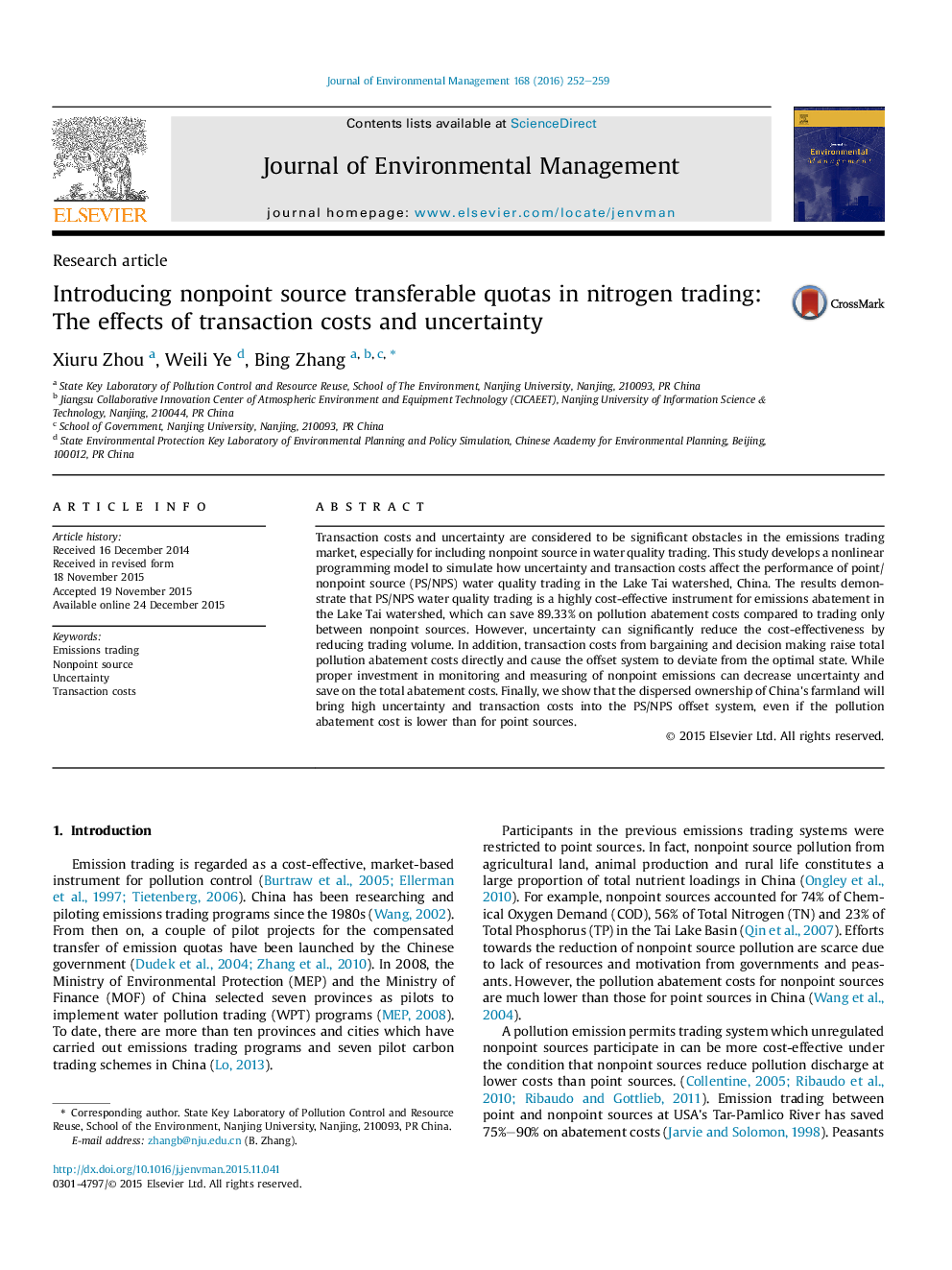| Article ID | Journal | Published Year | Pages | File Type |
|---|---|---|---|---|
| 1055565 | Journal of Environmental Management | 2016 | 8 Pages |
•We modeled the performance of PS/NPS emission trading market.•Uncertainty would reduce the cost effectiveness by reducing trading volume.•Transaction costs from bargaining raise total pollution abatement costs.•Dispersed ownership of farmland brings high uncertainty and transaction costs.
Transaction costs and uncertainty are considered to be significant obstacles in the emissions trading market, especially for including nonpoint source in water quality trading. This study develops a nonlinear programming model to simulate how uncertainty and transaction costs affect the performance of point/nonpoint source (PS/NPS) water quality trading in the Lake Tai watershed, China. The results demonstrate that PS/NPS water quality trading is a highly cost-effective instrument for emissions abatement in the Lake Tai watershed, which can save 89.33% on pollution abatement costs compared to trading only between nonpoint sources. However, uncertainty can significantly reduce the cost-effectiveness by reducing trading volume. In addition, transaction costs from bargaining and decision making raise total pollution abatement costs directly and cause the offset system to deviate from the optimal state. While proper investment in monitoring and measuring of nonpoint emissions can decrease uncertainty and save on the total abatement costs. Finally, we show that the dispersed ownership of China's farmland will bring high uncertainty and transaction costs into the PS/NPS offset system, even if the pollution abatement cost is lower than for point sources.
